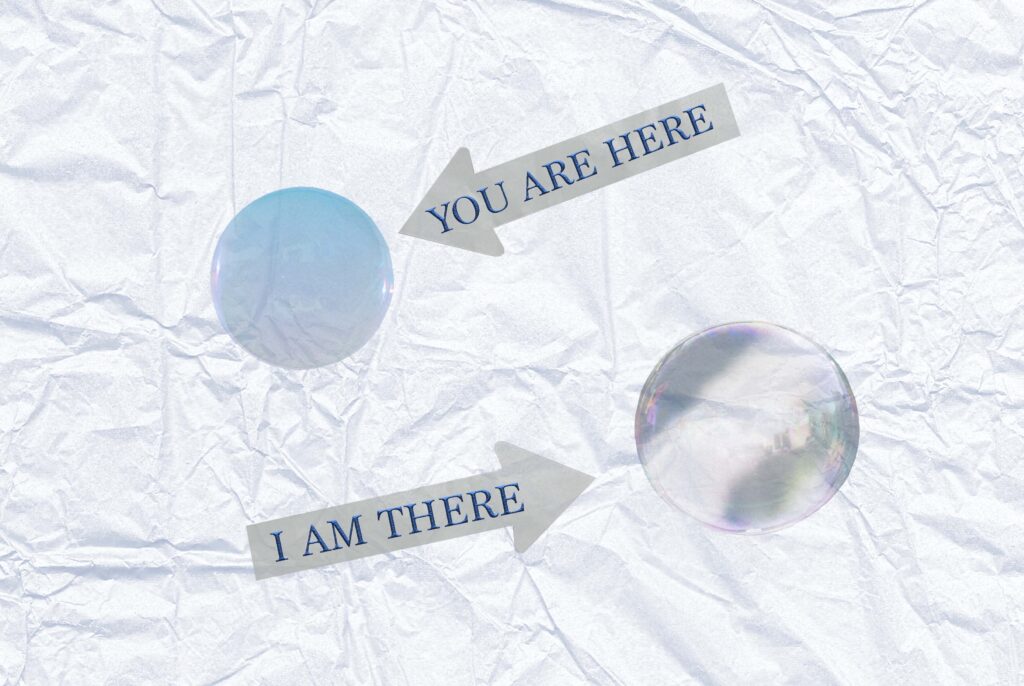Our online experience is intricately shaped by algorithms, tailoring content to our preferences. While this personalization offers convenience, it also traps us in “filter bubbles,” isolating us from diverse perspectives.

Our experience on the internet is completely curated to us, that shouldn’t really be a surprise. With algorithms and tracking online, different websites and applications get to know your online habits better and share content that best aligns with those. While algorithms offer personalized experiences and convenience, they also have the power to create what is known as a “filter bubble.” It should be our goal, as internet users, to “pop” that bubble and access the digital world as a whole.
Filter bubbles, a term coined by internet activist Eli Pariser, describe when algorithms selectively expose users to content based on preferences and selections made in the past. The algorithm works to create a personalized bubble that only you have access to, from the types of news you see to advertisements you get, no one’s filter bubble is the same. However, the issue that arises is the danger of information isolation.
We like to believe that we have healthy relationships with the media. As a matter of fact, we feel productive with it. The digital world is full of connections and new perspectives that lead us to think we are broadening our minds. Yet, what these filter bubbles are doing is tending to our own perspectives first. If two internet users were to search for the same country, one might get search results with travel information while the other gets political information.
It might seem insignificant with search queries related to personal interests, but algorithms span across numerous platforms. From Instagram to TikTok, the content one sees is specifically for them. Since the content is selected based on our digital habits, we don’t look for other kinds of information; we’re comfortable with what we’re seeing. This is where information isolation comes in, the algorithms are only confirming your existing beliefs and opinions. Unless you actively search for something new, all you are going to find online are like-minded users to yourself.
One of the things that was so appealing about the internet when it was new was the idea of becoming a better democracy, quiet voices can have a chance to be heard and stories can be spread. But the bubble hinders that idea and limits our perspectives. There isn’t an opportunity for everyone to completely understand different sides to stories which only fuels closed-mindedness. As the internet has grown, several, if not all, users have been exposed to toxic internet culture. That environment thrives off ideological divisions created by existing in a filter bubble. It makes it more challenging to create meaningful dialogue with those who have differing opinions.
Algorithms were not intended to lead to such negative effects, rather they are at the heart of several search engines to create more efficiency and engagement. It just happens that the more time we spend on the internet, the more personalized our digital world becomes. But there are several things we can do to better combat these echo chambers.
Transparency is one approach to moderate the filter bubble effect by offering users the chance to control their online experiences. Some platforms already have settings that users can apply to limit the kinds of content they are exposed to; there can also be settings for more diversity within the content. If the algorithms are intended to create a very homed-in experience, then they can also be modified to prioritize more viewpoints as well.
Another approach is educating internet users on filter bubbles and algorithms. It’s clear to several people that the content they see is selected for them, but the dramatic extent of filter bubbles is relatively unknown. Through education, users can more effectively navigate search engines and social media platforms to better understand information.
In short, algorithms have revolutionized how we access and interpret information. Even though they have brought several improvements to the internet, the filter bubble theory just proves that there is a lot more to understand about the digital world. It’s important to understand the limitations created by filter bubbles and how to alter your online experience to not become isolated.
Interested in learning more?
How filter bubbles isolate you
Are you in a social media bubble? Here’s how to tell
The Causes and Effects of “Filter Bubbles” and how to Break Free
